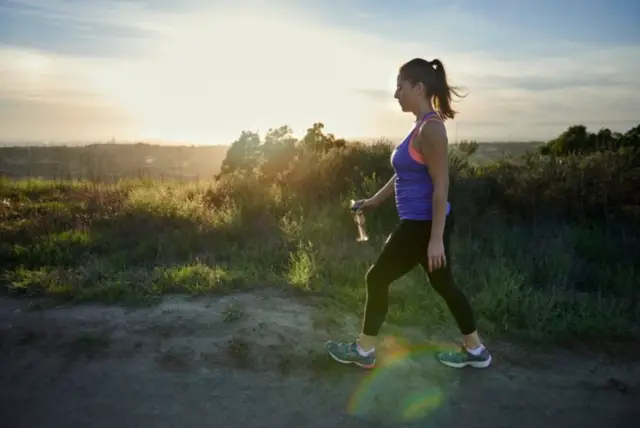A randomized controlled trial not only convincingly confirms that time of day affects exercise efficacy, but also shows that these effects differ between types of exercise and between women and men
What is the best time to exercise? For most people, the answer depends on family and work hours. But in the last decade, several studies have found that this question depends on much more than these limitations. The latest scientific evidence suggests that the effectiveness of exercise depends on the time of day.

Now, a randomized controlled trial not only convincingly confirms that time of day affects exercise efficacy. It also shows that these effects differ between types of exercise and between women and men.
“We have shown for the first time that morning exercise reduces belly fat and blood pressure in women, while nighttime exercise increases upper body muscle strength, power, and endurance. And it improves general mood and nutritional satiety”, explains Paul J. Arciero, main researcher of the study and professor in the Department of Health and Human Physiological Sciences at Skidmore College in Saratoga Springs (New York, United States).
For its part, in the case of men, evening exercise “reduces blood pressure, the risk of heart disease and the feeling of fatigue. In addition, it burns fatter, compared to morning exercise”, says Arciero.
The research: The best time to exercise
In their work, published in the scientific journal Frontiers in Physiology, the authors recruited 30 women and 26 men to participate. All were between the ages of 25 and 55, healthy, very active, non-smokers, and normal weight. They were trained by trainers for 12 weeks, following a program previously developed by the researchers.
This exercise was like this: Depending on the day of the week, 60 minutes of resistance training and sprint interval training, also with stretch training or resistance training. Wednesdays, Saturdays and Sundays were days off.

The participants followed a specially designed meal plan with a protein intake of between 1.1 and 1.8 g per kilogram of body weight per day. Those assigned to morning exercise ate breakfast after exercise and had 3 other meals at 4-hour intervals. Those assigned to evening exercise ate 3 meals at 4-hour intervals before training, plus one afterward.
At the beginning and end of the trial, aerobic power, muscular endurance, flexibility, and balance were comprehensively assessed; also the strength and power of the upper and lower body and the jumping ability of the participants. Only 16% out of the 56 enrolled participants dropped out of the study during the 12 weeks. This was due exclusively to the fact that they could not follow the nutrition and exercise program.
In addition to changes in participants’ physical and metabolic parameters, such as blood pressure, arterial stiffness, respiratory exchange ratio, and body distribution and percentage of fat throughout the trial, the researchers also measured changes in blood biomarkers.; for example, insulin, total cholesterol and HDL ‘good’ cholesterol, C-reactive protein, and IL-6. They also administered questionnaires to the participants to quantify changes in mood and feelings of food satiety.
Clear benefits of appropriate performance
The researchers found that all participants improved their overall health and performance throughout the trial, regardless of their assignment to morning or evening exercise. But more importantly, they also show that the time of day determines the strength of improvements in physical performance; as well as in body composition, cardiometabolic health, and mood.

For example, all participants reduced total body fat, abdominal and hip fat, and blood pressure throughout the trial. But these improvements were greater in women who exercised in the morning.
Only men who exercised in the afternoon showed a drop in their ratio of total cholesterol to HDL in blood pressure. As well as in the respiratory exchange ratio and in the oxidation of carbohydrates, since fat became the preferred fuel source. Based on our findings, women interested in reducing belly fat and blood pressure while increasing leg muscle power should consider exercising in the morning.
However, for women interested in gaining upper body muscular strength, power, and endurance, as well as improving overall mood and food intake, evening exercise is the preferred option. On the contrary, nighttime exercise is ideal for men interested in improving cardiac and metabolic health and emotional well-being”, summarizes Arciero.

